Reviews
The Creatures
Agnès Varda
Sweden / France, 1966
Credits
Review by Ian Johnston
Posted on 22 July 2010
Source MUBI.com streaming video
Categories Viva Varda: The Films of Agnès Varda
Les Créatures is Agnés Varda’s film maudit. In spite of the star power that Catherine Deneuve and Michel Piccoli brought to the film (a first for Varda) it was a commercial and critical disaster that brought a provisional halt to her filmmaking career in France and made it a film that has been very little seen ever since. Though it baffled contemporary audiences, Les Créatures now seems very much of its time, giving us the familiar sixties trope of the blurring of fantasy and reality, here as the product of the struggle within a writer’s mind. It’s also - unusually for Varda, who, unlike other French New Wave directors, did not come to filmmaking along the cinéphile route - a film that acknowledges obvious influences, above all to Fritz Lang’s Mabuse films and Ingmar Bergman’s The Seventh Seal. (There’s even a Bergman star, Smiles of a Summer Night’s Eva Dahlbeck, in the cast.) In this light it’s rather apt that Varda dedicates the film to her cinephile husband Jacques Demy.
Piccoli plays a writer living on the isolated Atlantic-coast Île de Noirmoutier (a setting not so far removed from Bergman’s “island” movies) with his mute, pregnant wife and struggling to complete a science fiction novel. The novel itself deals with an evil mastermind who, by means of metallic discs slipped into people’s pockets, is able to control the actions of the local inhabitants. Piccoli spends a lot of time wandering rather aimlessly around the island, disengaged for the most part except for occasional brief encounters with some of the locals (when he’s not discovered in serious conversation with a horse or a rabbit!): Suzanne, the young daughter of the owners of a grocery store; Simon, an older son who works at the hotel; Michèle, the hotel owner; her married lover, the local doctor; her foul wheelchair-bound father; a couple of linen peddlers/small-time crooks; and Ducasse, a retired engineer.
Piccoli’s wanderings around the island are also a sign of breakdown in his relationship with his wife. Her muteness is clearly psychological, a reaction to the arrogance he displayed in the film’s pre-credits opening sequence where his male bravado and disavowal of her needs led to the car accident that has scarred both of them, he physically on his forehead, she psychologically. Although she grants her less screen time, Varda still constantly returns to brief scenes of Deneuve at home, either alone or interacting with Piccoli. Thus, she establishes the couple as the central theme of Les Créatures. This also becomes the core to the game that develops in the science fiction plot, just as the control mechanisms within that plot reflect Piccoli’s attempts at control over his mute wife.
Varda, much as she does in her first feature La Pointe-Courte, gives this setting a firm basis in reality through the use of documentary footage of the port, fishermen at work, and the local market. But before long we start to be unsure as to the exact status of the characters in Les Créatures. To what extent are they products of Piccoli’s imagination? The boundary line seems to keep shifting, and what appears to be the sketching-in of the local environment - a feature of all Varda’s work, always strong on locale - seeps into the writer’s work. It becomes increasingly ambiguous: is Piccoli inspired by the inhabitants of the island that he has met, altering them to appear as characters in his novel? Or is the direction the other way: are these characters we view in fact the creation of the writer himself? Thus Michèle’s conversation with her lover is intercut with shots of Piccoli, followed by a shot where her voice is heard over another image of him writing. Or, her description of what her father says to her is then repeated and added to by the writer before being spoken by the old man himself. (She tells her lover what her father said to her. Cut: Piccoli repeats these words and adds to them. Cut: The old man repeats these lines.)
Piccoli’s science fiction world - in which an individual can be brought under control and their thoughts, words and actions directed for exactly one minute - has already taken hold in what we take to be the “real” world when, in a bizarre comic-thriller subplot (which Varda resolutely refuses to shoot in thriller style), Piccoli is blackmailed by the linen peddlers into participating in a break-in of the engineer’s tower-like home. Ducasse is now revealed as the Mabuse of the world around him, backed up by all-seeing TV screens, a set of playing cards depicting the characters of this world, and a chessboard across which living figures are moved.
Now, in the symbolic-allegorical centre of the film, Piccoli must play against Ducasse to decide the fate of the couples before them, characters that we’ve already seen in the film. But Varda is too impish in humour and has too light a touch to weigh this all down with the metaphorical heaviness of the chess game in Bergman’s The Seventh Seal. It’s not a fight over their souls, after all, just over their happiness as couples. Like a character in a fairy tale, Piccoli is given three opportunities to intervene and thwart Ducasse’s project of breaking up a particular couple. It turns out, though, that he doesn’t even need all of these supernatural interventions. He does use one to save Michèle and her doctor lover from a break-up. But Michèle’s sister Viviane has too much equilibrium to be affected by Ducasse’s instance of control, of forcing her lover to steal from her purse. And in the end, when Ducasse pushes things too far by trying to stage the molestation of a minor, Piccoli resolves the situation by simply smashing up the control panels and monitor.
This is hardly abiding by the rules of the game, but the point is that Varda doesn’t either. Les Créatures is a work of misdirection—and this is the saving grace of the film, which otherwise threatens to topple over into pretension. It’s a mistake to view this science-fiction plot as the centre of the film; it’s only one element in a diverse mix that veers back and forth between documentary record, offbeat slapstick, and psychological drama. And if Ducasse stands as a surrogate for the artist/writer, then that points to a critique of Piccoli himself. In spite of his central role in the film and his monopoly of screen time, Varda’s interest is not with him but rather with the Catherine Deneuve character, the wife apparently at the margins of the plot. She’s the one who, in the film’s opening car accident sequence, has been literally silenced through his arrogance. She’s the one who, when she regains her voice at the film’s end, finally gives a name for the viewer to his character (“Edgar!”). And she’s the one who provides the ultimate meaning to Piccoli’s wanderings and to the film itself, in the closing shot of her newborn baby, the symbolic rebirth of a fractured couple.
More Viva Varda: The Films of Agnès Varda
-
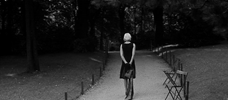
Cléo from 5 to 7
1962 -

Le Bonheur
1964 -
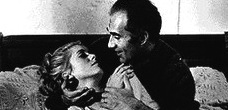
Les Créatures
1966 -
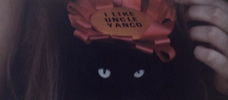
Uncle Yanco
1967 -
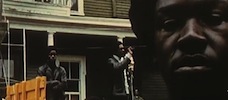
Black Panthers
1968 -
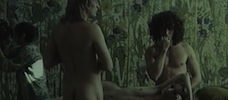
Lions Love
1969 -
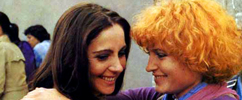
One Sings, the Other Doesn’t
1977 -

Daguerréotypes
1976 -

Mur murs
1981 -
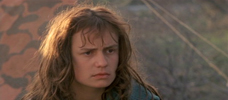
Vagabond
1985 -
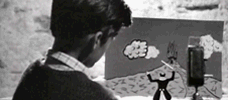
Jacquot de Nantes
1991 -

One Hundred and One Nights of Simon Cinéma
1995 -
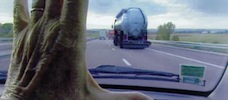
The Gleaners and I
2000 -
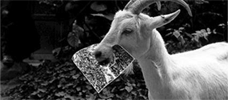
Cinévardaphoto
2004 -
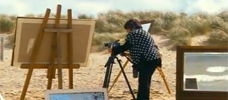
The Beaches of Agnès
2008
We don’t do comments anymore, but you may contact us here or find us on Twitter or Facebook.



